Latest Articles about Foreign Policy

Astana Steps Closer to Military Alliance with Moscow
In his address to the Collective Security Treaty Organization's (CSTO) summit in Moscow on June 14, Kazakhstan's President Nursultan Nazarbayev assured his counterparts, above all the Russian President Dmitry Medvedev, that his country unreservedly supports all projects aimed at strengthening this organization. Indeed, Kazakhstan, surrounded... MORE
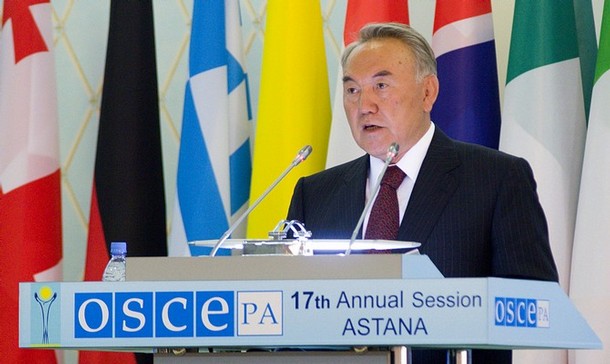
Kazakhstan Poised to Step into the OSCE’s Chairmanship
Kazakhstan is actively preparing to take over the OSCE's chairmanship next year. The challenges are daunting to any chairing country and the organization as such. According to multiple, though unofficial reports from the organization's Vienna headquarters, Kazakhstan has asked Finland to host an OSCE summit... MORE
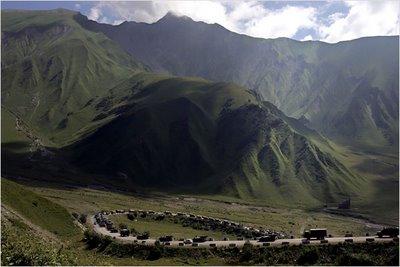
Russian Military Chief Accuses Georgia of Preparing Aggression
The top Russian military commander, the Chief of the General Staff and First Deputy Defense Minister Army-General Nikolai Makarov during the Paris air show this week said: "Georgia is saber-rattling and preparing weapons to resolve its territorial problems by any means." Makarov accused NATO of... MORE

Turkey Considers Procuring American or Russian Attack Helicopters
Undersecretary of Defense Industries Murad Bayar told reporters that he is optimistic about the purchase of Super Cobra helicopters from the U.S. Navy, amidst reports that a Turkish delegation is visiting Moscow to discuss the procurement of Russian MI-28 helicopters. In a stalled bid, the... MORE

UNOMIG, RIP: the Curtain Finally Falls on a Side-Show
On June 16 U.N. Secretary-General Ban Ki-moon saw himself compelled to order the United Nations Observer Mission in Georgia (UNOMIG) to cease operations immediately, after 16 years of existence (Secretary-General's office press release, June 16). That same day (late on July 15 New York time)... MORE
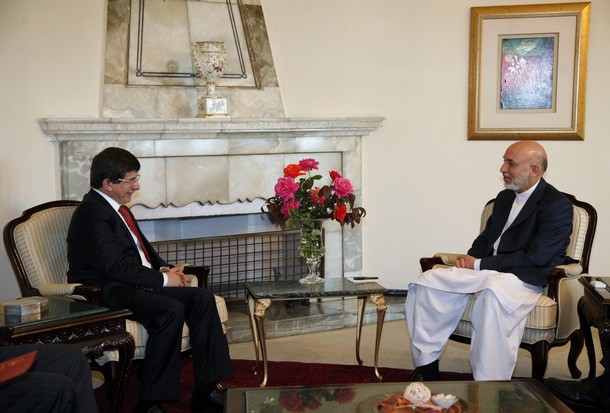
Turkish Foreign Minister Ahmet Davutoglu Visits Pakistan and Afghanistan
Turkish involvement in Pakistan and Afghanistan has mainly developed as a result of Ankara's own initiatives. Recently, however, the U.S. requested that Turkey enhance its security assistance to Afghanistan and Pakistan. The Chairman of the Joint Chiefs of Staff Admiral Mike Mullen, asked the Turkish... MORE
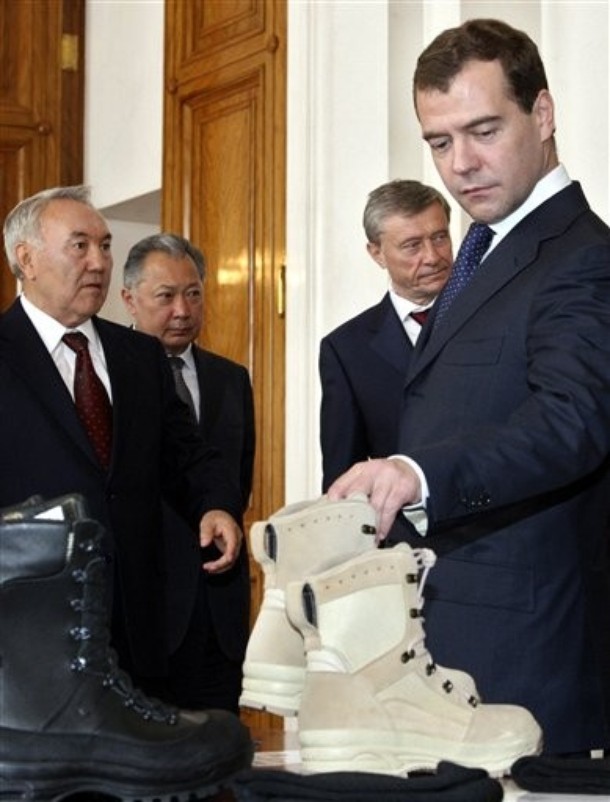
Uzbekistan Quietly Stalling on CSTO Collective forces
Russian President Dmitry Medvedev clarified that Armenia signed without conditions, but it was Uzbekistan that registered multiple objections and reservations at the Collective Security Treaty Organization's (CSTO) summit in Moscow on June 14 (EDM, June 15). The seven heads of state were scheduled to approve... MORE
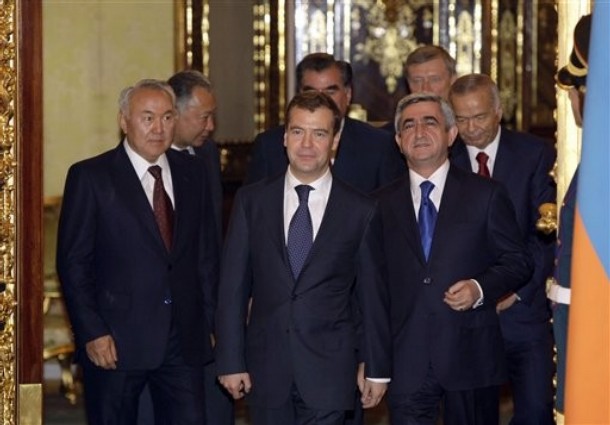
Belarusian President Boycotts Moscow’s CSTO Summit
Belarus refused to attend the Collective Security Treaty Organization (CSTO) summit in Moscow on June 14. The summit made decisions to enlarge the size of collective rapid deployment forces, the scope of their missions, and the legal basis of their operations.President Alyaksandr Lukashenka cancelled the... MORE

Turkish Cypriot Prime Minister Eroglu Visits Ankara
The E.U. has set December 2009 as the deadline for Turkey to open its ports and airports to Greek Cypriots, and failure to comply might result in the suspension of talks on membership. Resolving the Cyprus issue is a critical part of the conditions set... MORE

Moscow Ready to Scuttle U.N. and OSCE Missions in Georgia
Russia is running the countdown to zero on the OSCE and U.N. observer missions in Georgia. The mandates of both are due to expire before the end of this month, their re-negotiation subject to a Russian veto. Moscow threatens to kill both missions imminently by... MORE